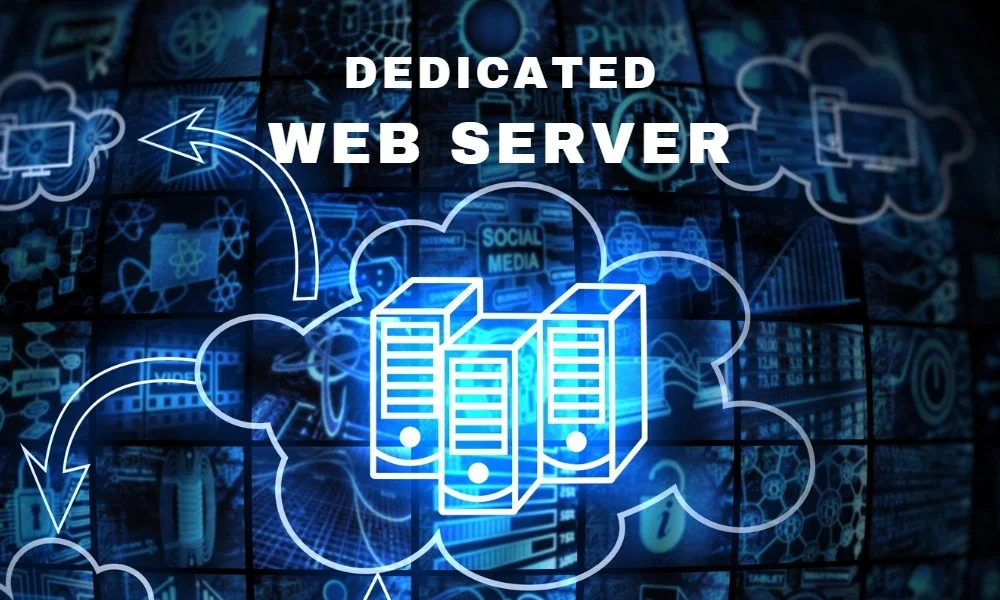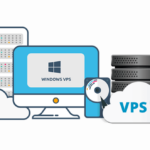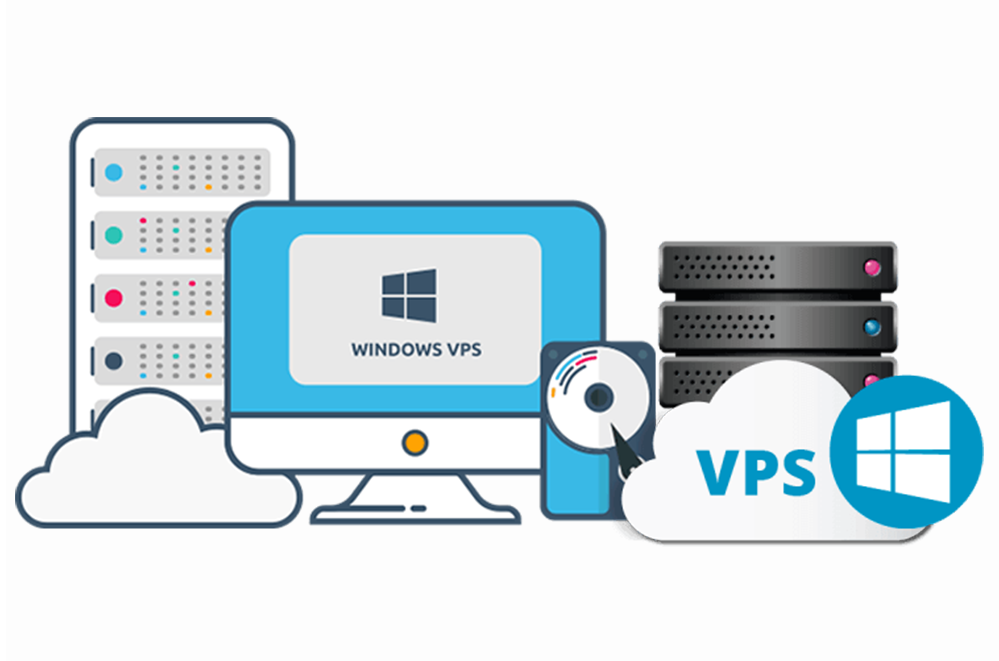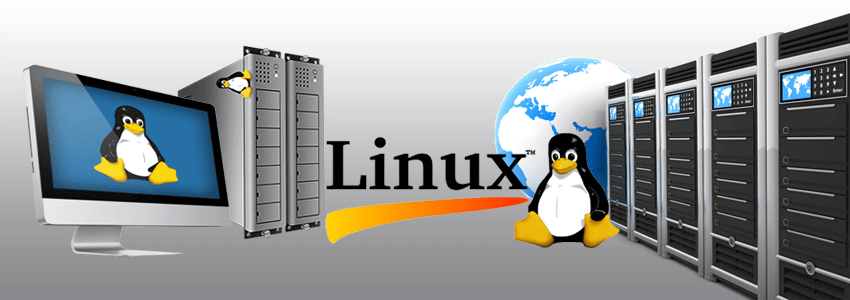- The Complete Guide
- What is Dedicated Server Hosting?
- When to Consider Dedicated Server Hosting for Your Website
- Types of Dedicated Server Hosting
- Hardware Considerations for Web Hosting
- Web Hosting Operating System Options
- Web Server Software Options
- Control Panel Options for Web Hosting Management
- Security Considerations for Dedicated Web Hosting
- Performance Optimization for Web Hosting
- Backup and Disaster Recovery for Web Hosting
- Scaling Your Web Hosting
- Monitoring Your Dedicated Web Server
- Key Providers of Dedicated Server Web Hosting
- Making Your Decision
- Conclusion
The Complete Guide
Dedicated server hosting represents the pinnacle of web hosting solutions, offering unparalleled performance, security, and control. Unlike shared or VPS hosting where resources are divided among multiple users, a dedicated server provides exclusive access to an entire physical server for your websites and web applications. This comprehensive guide explores everything you need to know about dedicated server web hosting.
What is Dedicated Server Hosting?
Dedicated server hosting is a web hosting solution where an entire physical server is leased exclusively to a single client. With dedicated hosting, all the server’s resources—CPU, RAM, storage, and bandwidth—are committed solely to powering your websites and web applications.
Think of it as owning your own house instead of sharing an apartment building (shared hosting) or having a private condo in a larger complex (VPS hosting). With a dedicated server, you get complete privacy, security, and the freedom to customize your environment exactly as needed for optimal web performance.
When to Consider Dedicated Server Hosting for Your Website
Dedicated servers represent a significant investment compared to other hosting options. Here’s when they make sense for web hosting:
High-Traffic Websites
If your website receives thousands of visitors daily or experiences significant traffic spikes, a dedicated server provides the consistent performance needed to handle the load without slowdowns.
E-commerce Websites
Online stores require robust security, fast loading times, and reliable uptime—especially during peak shopping periods. Dedicated servers provide the performance and security necessary for successful e-commerce operations.
Multiple High-Performance Websites
If you’re hosting multiple websites with significant resource requirements, a dedicated server allows you to allocate resources efficiently across your sites.
Custom Web Applications
Complex, resource-intensive web applications often require specific server configurations and guaranteed resources that only dedicated servers can provide.
Security and Compliance Requirements
Websites handling sensitive data or subject to regulatory requirements (HIPAA, PCI-DSS, etc.) benefit from the enhanced security and isolation of dedicated servers.
Performance-Critical Web Services
When milliseconds matter—such as with real-time web applications, online gaming sites, or financial services—dedicated servers deliver consistent, high-performance results.
Types of Dedicated Server Hosting
Dedicated servers come in several configurations to match different web hosting needs:
Managed vs. Unmanaged Dedicated Servers
Managed Dedicated Servers
What it includes: The hosting provider handles server maintenance, security updates, monitoring, and technical support.
Best for: Businesses focused on their websites rather than server administration, those without dedicated IT staff, and anyone who values convenience over complete control.
Key features:
- Operating system updates and security patches
- Server monitoring and issue resolution
- Control panel installation and management
- Hardware maintenance and troubleshooting
- Regular backups
- DDoS protection and firewall configuration
- Technical support for server issues
Unmanaged Dedicated Servers
What it includes: You get the bare hardware with an operating system installed, and you’re responsible for all server management.
Best for: Web developers, system administrators, and businesses with technical expertise who want complete control over their server environment.
Key features:
- Full root/administrator access
- Freedom to configure the server however needed
- No restrictions on software installation
- Lower cost than managed options
- Complete control over security measures
Single-Tenant vs. Multi-Tenant Dedicated Servers
Single-Tenant Dedicated Servers
A traditional dedicated server where you are the only client on that physical machine.
Multi-Tenant Dedicated Servers
Sometimes called “semi-dedicated,” these servers offer dedicated resources at a lower cost by hosting a very small number of clients on high-capacity hardware with strict resource isolation.
Hardware Considerations for Web Hosting
The physical components of your dedicated server directly impact website performance:
CPU (Processor)
Impact on web hosting: Affects how quickly your server can process web requests, particularly for dynamic content.
Considerations:
- Core count: More cores allow better handling of multiple simultaneous requests
- Clock speed: Higher speeds (GHz) improve single-thread performance
- Architecture: Newer generations offer better performance per watt
- Cache: Larger cache improves performance for frequently accessed data
Recommendations for web hosting:
- Basic websites: 4-8 cores
- High-traffic or complex sites: 8-16+ cores
- Content management systems: Benefit from higher clock speeds
- Multi-site hosting: Prioritize higher core count
Memory (RAM)
Impact on web hosting: Determines how much data your server can actively work with at once, directly affecting website response times.
Considerations:
- Capacity: More RAM allows for more concurrent users
- Type: DDR4 vs. newer DDR5 memory
- ECC vs. non-ECC: Error-Correcting Code memory for better reliability
Recommendations for web hosting:
- Basic websites: 16-32GB
- E-commerce/database-heavy sites: 32-64GB
- Enterprise web applications: 64GB-128GB+
- Content caching: Benefits significantly from additional RAM
Storage
Impact on web hosting: Affects website loading speed, database performance, and content delivery.
Options:
- SSD (Solid State Drive): Much faster than HDD, ideal for web hosting
- NVMe SSD: Even faster than SATA SSDs, excellent for database-driven sites
- HDD (Hard Disk Drive): Higher capacity at lower cost, suitable for large content storage
- RAID configurations: Different levels balance performance, capacity, and redundancy
Recommendations for web hosting:
- Operating system/applications: SSD or NVMe (100-500GB)
- Databases: Fastest storage available (preferably NVMe)
- Content storage: SSD for active content, HDD for archives if needed
- RAID: RAID-10 offers good balance of performance and redundancy
Network Connectivity
Impact on web hosting: Determines how quickly your website data travels between the server and visitors.
Considerations:
- Bandwidth: Monthly data transfer allowance
- Port speed: 1Gbps standard, 10Gbps for high-traffic sites
- Network quality: Peering arrangements, backbone connectivity
- DDoS protection: Mitigation services to keep your site online during attacks
Recommendations for web hosting:
- Minimum port speed: 1Gbps
- High-traffic sites: Consider 10Gbps ports
- Bandwidth: Calculate based on average page size × monthly visitors
- Public vs. private network interfaces for separate traffic types
Web Hosting Operating System Options
Your choice of operating system impacts available web technologies, performance, and management:
Linux Dedicated Servers for Web Hosting
Popular distributions for web hosting:
- Ubuntu Server: User-friendly with excellent community support
- CentOS Stream/Rocky Linux/AlmaLinux: Enterprise stability for production websites
- Debian: Exceptional stability and security with minimal resource usage
- CloudLinux: Specifically designed for shared web hosting environments
Advantages for web hosting:
- Excellent performance for web servers
- Lower resource overhead than Windows
- Free, open-source software reduces costs
- Industry-standard for most web hosting technologies
- Vast ecosystem of web hosting tools and applications
Best for:
- Most standard websites and web applications
- PHP, Python, Ruby, Node.js applications
- WordPress, Drupal, Joomla, and other popular CMS platforms
- High-performance web serving with NGINX or Apache
Windows Dedicated Servers for Web Hosting
Available versions:
- Windows Server 2022
- Windows Server 2019
- Windows Server 2016
Advantages for web hosting:
- Native support for Microsoft technologies
- Seamless integration with Microsoft development tools
- Excellent for .NET-based websites and applications
- Familiar interface for Windows administrators
Best for:
- ASP.NET websites
- MS SQL Server-based web applications
- SharePoint web applications
- Windows-specific web technologies
Web Server Software Options
The web server software handles HTTP requests for your websites:
Apache Web Server
Advantages:
- Extremely widespread and well-documented
- Highly compatible with various web applications
- Modular architecture for customization
- Excellent for PHP-based websites
Best for:
- General-purpose web hosting
- PHP applications
- Shared hosting environments
- Sites requiring .htaccess flexibility
NGINX Web Server
Advantages:
- Superior performance for static content
- Excellent for high-traffic websites
- Lower memory footprint than Apache
- Powerful reverse proxy capabilities
Best for:
- High-traffic websites
- Static content serving
- Microservices architectures
- Load balancing and proxying
LiteSpeed Web Server
Advantages:
- Drop-in replacement for Apache with better performance
- Built-in caching capabilities
- Lower resource usage than Apache
- Excellent for WordPress acceleration
Best for:
- WordPress and other CMS hosting
- cPanel environments
- Apache compatibility with better performance
- High-density website hosting
Internet Information Services (IIS)
Advantages:
- Native integration with Windows Server
- Excellent for ASP.NET applications
- Integrated with Windows authentication
- Familiar for Windows administrators
Best for:
- Windows-based web hosting
- .NET applications
- Microsoft technology stack
- Windows authentication integration
Control Panel Options for Web Hosting Management
Control panels simplify server management for web hosting:
cPanel/WHM
The most popular control panel for Linux web hosting, offering comprehensive website management, email, databases, and server administration.
Advantages:
- Industry standard with widespread familiarity
- Extensive feature set for web hosting management
- Regular updates and security patches
- Large ecosystem of extensions and integrations
Plesk
Cross-platform control panel supporting both Linux and Windows servers, with strong support for web developers.
Advantages:
- Works on both Linux and Windows
- Developer-friendly features
- Docker integration
- WordPress toolkit
- Extensions for hosting business management
DirectAdmin
Lightweight, resource-efficient control panel for Linux servers.
Advantages:
- Lower resource usage than alternatives
- Cost-effective licensing
- Straightforward interface
- Good performance on lower-spec servers
Webmin/Virtualmin
Open-source control panel solution for Linux servers.
Advantages:
- Free, open-source software
- No licensing costs
- Highly customizable
- Good for technical users
Custom Control Panels
Many hosting providers offer their own custom control panels designed for their specific infrastructure.
Security Considerations for Dedicated Web Hosting
Dedicated servers offer enhanced security capabilities for your websites:
Hardware Firewall Protection
Dedicated hardware firewalls provide robust protection against network-based attacks, with customizable rules for your specific web applications.
DDoS Mitigation
Advanced distributed denial-of-service protection shields your websites from volumetric attacks that could otherwise take them offline.
Server Hardening
Customizable security measures including:
- Disabled unnecessary services
- Restrictive file permissions
- SELinux/AppArmor implementation
- Regular security updates
- Intrusion detection systems
Web Application Firewall (WAF)
Protection specifically designed for web applications, blocking common attack patterns like SQL injection, cross-site scripting, and other OWASP Top 10 vulnerabilities.
SSL/TLS Configuration
Complete control over SSL/TLS implementation for your websites, including:
- Custom cipher suite selection
- Perfect forward secrecy
- HTTPS enforcement
- HSTS implementation
- Modern TLS protocol support
Regular Security Scanning
Vulnerability scanning and malware detection specifically for web hosting environments:
- File integrity monitoring
- Suspicious file detection
- Outdated software alerts
- Security misconfigurations
Performance Optimization for Web Hosting
Dedicated servers allow extensive performance tuning for optimal website speed:
Web Server Optimization
Fine-tune web server settings for your specific needs:
- Worker/connection limits
- Keepalive settings
- Buffer sizes
- Static file caching
- Compression optimization
Database Tuning
Optimize database performance for web applications:
- Query caching
- Buffer pool sizing
- Index optimization
- Storage engine selection
- Replication for read-heavy sites
Content Delivery Optimization
Implement advanced content delivery strategies:
- Content Delivery Network (CDN) integration
- Edge caching
- Browser caching policies
- HTTP/2 or HTTP/3 implementation
- GZIP/Brotli compression
PHP/Application Optimization
Tune application environments for better performance:
- Opcode caching
- Process manager configuration
- Memory limits adjustment
- Session storage optimization
- Application-specific caching
Kernel and OS Tuning
Low-level optimizations for web traffic:
- TCP stack tuning
- File system optimization
- I/O scheduler selection
- Memory management parameters
- Network buffer optimization
Backup and Disaster Recovery for Web Hosting
Comprehensive backup strategies protect your website data:
Backup Options
Different approaches to website backups:
- Full server backups
- Website-specific backups
- Database backups
- Incremental vs. full backups
- On-server and off-server storage
Disaster Recovery Planning
Preparation for worst-case scenarios:
- Server failure contingency plans
- Geographic redundancy options
- Backup verification and testing
- Recovery time objective planning
- Documentation of recovery procedures
Scaling Your Web Hosting
When a single dedicated server isn’t enough, these scaling options provide growth paths:
Vertical Scaling (Scaling Up)
Upgrading your existing server’s hardware:
- CPU upgrades
- RAM expansion
- Storage additions
- Network capacity increases
Horizontal Scaling (Scaling Out)
Adding additional servers to distribute load:
- Load balancer configuration
- Session management across servers
- Database replication/clustering
- Distributed file systems
- Microservices architecture
Hybrid Approaches
Combining dedicated servers with other technologies:
- Cloud bursting for traffic spikes
- CDN integration for content offloading
- Function-as-a-Service for specific components
- Dedicated database servers with web application servers
Monitoring Your Dedicated Web Server
Comprehensive monitoring ensures optimal website performance and availability:
Server Health Monitoring
Keeping track of server condition:
- CPU, RAM, and disk usage
- Service availability
- Error logs analysis
- Hardware health checks
- Security events
Website Performance Monitoring
Tracking the actual user experience:
- Page load times
- Server response times
- Uptime monitoring
- Transaction monitoring
- Real user metrics
Alerting and Reporting
Staying informed about server status:
- Threshold-based alerts
- Anomaly detection
- Scheduled performance reports
- Trend analysis
- Predictive monitoring
Key Providers of Dedicated Server Web Hosting
Several companies specialize in high-quality dedicated server hosting for websites:
Enterprise Dedicated Hosting Providers
Full-service solutions with comprehensive support:
- Liquid Web
- Rackspace
- IBM Cloud
- Leaseweb
- SingleHop/INAP
Budget-Friendly Dedicated Server Providers
More affordable options with good performance:
- OVHcloud
- Hetzner
- SoYouStart (OVH brand)
- HostGator Dedicated
- Hostwinds
Location-Specific Providers
Options focused on specific geographic regions for lower latency:
- Various regional providers with data centers in target markets
- Edge location specialists
- Country-specific hosting for regulatory compliance
Making Your Decision
When choosing a dedicated server for web hosting, consider these factors:
Traffic Requirements
- Current website traffic levels
- Expected growth and traffic spikes
- Concurrent user estimates
- Traffic patterns (steady vs. bursty)
Web Application Needs
- Resource requirements of your CMS or web application
- Database size and query complexity
- Dynamic content generation needs
- Caching possibilities
Technical Expertise
- In-house system administration capabilities
- Familiarity with server management
- Development team requirements
- Support needs and preferences
Budget Considerations
- Initial setup costs vs. ongoing monthly expenses
- Managed vs. unmanaged cost differential
- Total cost of ownership including management time
- Growth-related cost projections
Growth Planning
- Short and long-term scaling strategy
- Traffic increase projections
- New feature/service plans
- Geographic expansion needs
Conclusion
Dedicated server web hosting provides the ultimate in performance, security, and control for websites and web applications. While it represents a higher investment than shared or VPS hosting, the benefits in terms of reliability, customization, and exclusive resources make it the ideal choice for high-traffic websites, e-commerce operations, and businesses where web performance directly impacts the bottom line.
By understanding the hardware, software, and management considerations outlined in this guide, you can make an informed decision about whether dedicated server hosting is right for your web presence, and how to select the option that best meets your specific needs.
Remember that the most powerful server hardware is only as good as its configuration and management. Whether you choose a fully managed solution or take control yourself with an unmanaged server, proper setup and ongoing optimization are key to getting the most from your dedicated web hosting investment.





